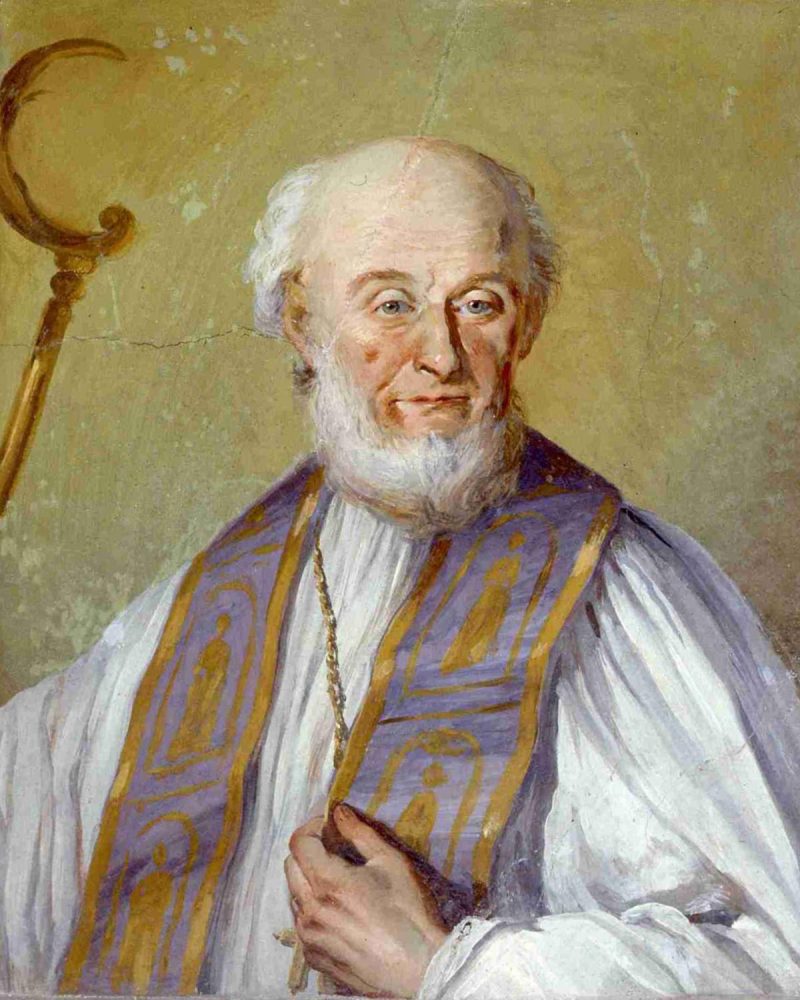Rev. José Mario O. Mandía
From the two Syriac Fathers, we now go back to the north of the Italian peninsula. We have previously talked about three bishops from there: Eusebius of Vercelli (Church Fathers 32), Ambrose of Milan (Church Fathers 33), and Maximus of Turin (Church Fathers 34). We will now focus our attention on Saint Chromatius, Bishop of Aquileia.
Chromatius was born around 345 AD in Aquileia, Italy. He lost his father when he was still an infant and so was raised by his mother, his older brother Eusebius and his unmarried sisters. Eusebius would also become a bishop and is also a saint. Saint Jerome confirms this: “Blessed Chromatius and St Eusebius were brothers by blood, no less than by the identity of their ideals” (Letter VIII: PL XXII, 342).
Chromatius received the priestly ordination around 387 AD. It was St Ambrose, Bishop of Milan, himself who ordained Chromatius bishop in 388 AD. Chromatius “dedicated himself courageously and energetically to an immense task because of the vast territory entrusted to his pastoral care: the ecclesiastical jurisdiction of Aquileia, in fact, stretched from the present-day territories of Switzerland, Bavaria, Austria and Slovenia, as far as Hungary” (Benedict XVI, General Audience, 5 December 2007).
Aquileia had suffered persecution under three emperors from the middle of the third century and the early years of the fourth. Furthermore, it also faced danger from barbarians. Chromatius managed to negotiate with Alaric and provided aid to those who suffered. Moreover, it had to deal with the threat of Arianism. Saint Athanasius (Church Fathers 24), had sought refuge here when the Arians sent him to exile. Chromatius effectively steered his flock away from this threat.
Chromatius was a good friend of Saint Ambrose, Saint Jerome and defended Saint John Chrysostom.
He encouraged Ambrose to write exegetical works, while he himself wrote commentaries on scripture, the most abundant of which are his treatises on Matthew’s Gospel.
He gave financial support to Saint Jerome’s work on the translation of the Bible and Rufinus’ translation of the Ecclesiastical History of Eusebius (Church Fathers 23). By engaging Rufinus in this work, Chromatius was able to dissuade him from quarreling with Jerome on the matter of Origenism. He was, indeed, a productive peacemaker. In this way, the Bishop of Aquileia played an important role in the translation of early Christian texts into Latin so that they could be more widely read.
“How well known and highly esteemed Chromatius was in the Church of his time we can deduce from an episode in the life of St John Chrysostom. When the Bishop of Constantinople was exiled from his See, he wrote three letters to those he considered the most important Bishops of the West seeking to obtain their support with the Emperors: he wrote one letter to the Bishop of Rome, the second to the Bishop of Milan and the third to the Bishop of Aquileia, precisely, Chromatius (Letter CLV: PG LII, 702). Those were difficult times also for Chromatius because of the precarious political situation. In all likelihood Chromatius died in exile, in Grado, while he was attempting to escape the incursions of the Barbarians in 407, the same year when Chrysostom also died” (Benedict XVI, General Audience, 5 December 2007).
As a pastor, Saint Chromatius’ “first and main commitment was to listen to the Word, to be able to subsequently proclaim it: he always bases his teaching on the Word of God and constantly returns to it” (Benedict XVI, General Audience, 5 December 2007).
The themes closest to his heart and which he spoke about had to do with the most important mysteries of the faith: the Blessed Trinity; the mystery of the Son of God made man; the presence of the Holy Spirit in the life of the Church; the Blessed Virgin Mary, whom he holds up as a model for the Church.
Saint Chromatius’ zeal led him “to speak to his people with a fresh, colorful and incisive language. Although he was not ignorant of the perfect Latin cursus, he preferred to use the vernacular, rich in images easy to understand. Thus, for example, drawing inspiration from the sea, he compared on the one hand the natural catching of fish which, caught and landed, die; and on the other, Gospel preaching, thanks to which men and women are saved from the murky waters of death and ushered into true life (cf. Tractatus XVI, 3: Scrittori dell’area santambrosiana 3/2, p. 106). Again, in the perspective of a good Pastor, during a turbulent period such as his, ravaged by the incursions of Barbarians, he was able to set himself beside the faithful to comfort them and open their minds to trust in God, who never abandons his children” (Benedict XVI, General Audience, 5 December 2007).
Let us end with this exhortation to his flock in one of his sermons: “The Lord will fight to defend you, and you will be silent. It is he who fights, it is he who wins the victory…. And so that he may condescend to do so, we must pray as much as possible. He himself said, in fact, through the mouth of the prophet: Call on me on the day of tribulation; I will set you free and you will give me glory” (Sermon XVI, 4).


 Follow
Follow


